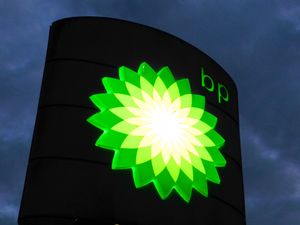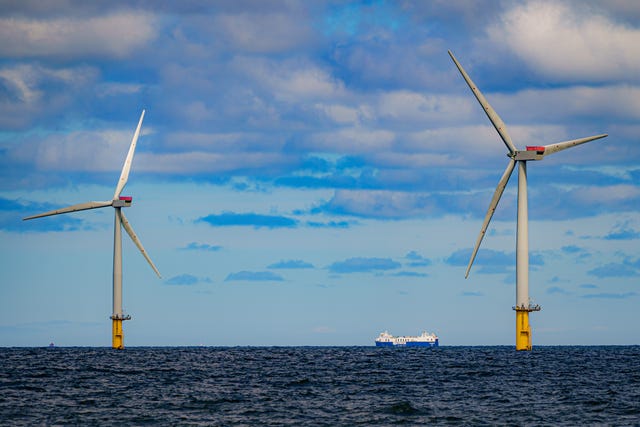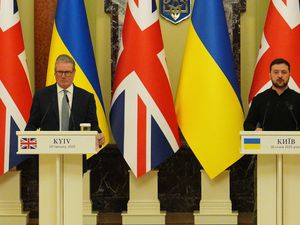BP slashes net-zero spending by nearly £4bn in renewed oil and gas focus
The fossil fuels giant said it would increase oil and gas investment by about 20% to £7.9 billion a year as part of a major strategy update.

BP has confirmed it will slash spending on net-zero transition businesses by more than five billion US dollars (£3.95 billion) a year, and significantly ramp up its oil and gas operations.
The fossil fuels giant said it still hopes to become a net-zero company but will only spend up to two billion dollars (£1.6 billion) a year on projects aimed at the energy transition, a significant cut.
It said it will increase oil and gas investment by about 20% to 10 billion US dollars (£7.9 billion) a year as part of a major strategy update.
Chief executive Murray Auchincloss said the company is focusing its spending on BP’s “highest-returning businesses to drive growth, and relentlessly pursuing performance improvements and cost efficiency”.
He added that as well as the increase in oil and gas spending, BP will be “very selective in our investment in the (energy) transition, including through innovative capital-light platforms”.
Mr Auchincloss said: “This is a reset BP, with an unwavering focus on growing long-term shareholder value.”
The update to the oil and gas giant’s plans come ahead of a major shareholder meeting in London on Wednesday afternoon.
BP has come under increasing pressure from some shareholders over falling profits and a share price that has lagged behind rival Shell.
The influential US hedge fund Elliott Management took a nearly £4 billion stake in the company recently, just under 5% of its shares.
The move is understood to have been aimed at pushing BP back towards fossil fuels to boost profit.
BP made about £7.2 billion last year, down a third on the year before, after oil and gas prices fell from the highs seen in the wake of Russia’s invasion of Ukraine.
According to the International Energy Agency, no new fossil fuel projects are compatible with limiting global warming to 1.5C compared to pre-industrial levels, a goal adopted by most of the international community.

However, BP has said it wants to increase its production to between 2.3 million and 2.5 million barrels of oil per day by 2030.
And it said it hopes “major” oil and gas projects will start by the end of 2027, with a target of eight to 10 kicking off by the end of the decade.
The decrease in renewables will cover biogas, biofuels and electric vehicle charging projects, while BP will go after “capital-light partnerships” in other green energy such as wind and solar.
Mr Auchincloss has already spun off BP’s offshore wind business in a joint venture while he is looking to offload its onshore wind arm.
BP’s update comes after the planet exceeded the 1.5C global warming threshold in the year to May 2024.
But it follows in the steps of other oil firms including Shell and Equinor, who have also retreated from green investments.
And US President Donald Trump’s promise to “drill, baby, drill” have encouraged the oil and gas giants to focus more on fossil fuels.
BP also said it would look to cut its overall costs by up to five billion dollars by the end of 2027.
The group has already been slashing costs in the face of tougher trading.
It recently announced it would cut more than 5% of its workforce, with moves to axe 4,700 jobs across its global workforce and 3,000 contractor roles.
Charlie Kronick, senior climate adviser for Greenpeace UK, said: “This is positive proof that fossil fuel companies can’t or won’t be part of climate crisis solutions. This conversation is over.
“The Climate Change Committee has said today UK emissions must be drastically slashed – the reality is now it’s up to the Government to see this through and to ensure companies like BP pay their share for the climate damage they’re causing.
“The UK is seeing more and more storms and floods – with people’s lives, homes or businesses ruined. Responding to the climate crisis can’t be driven by the whims of investors or the markets.”





